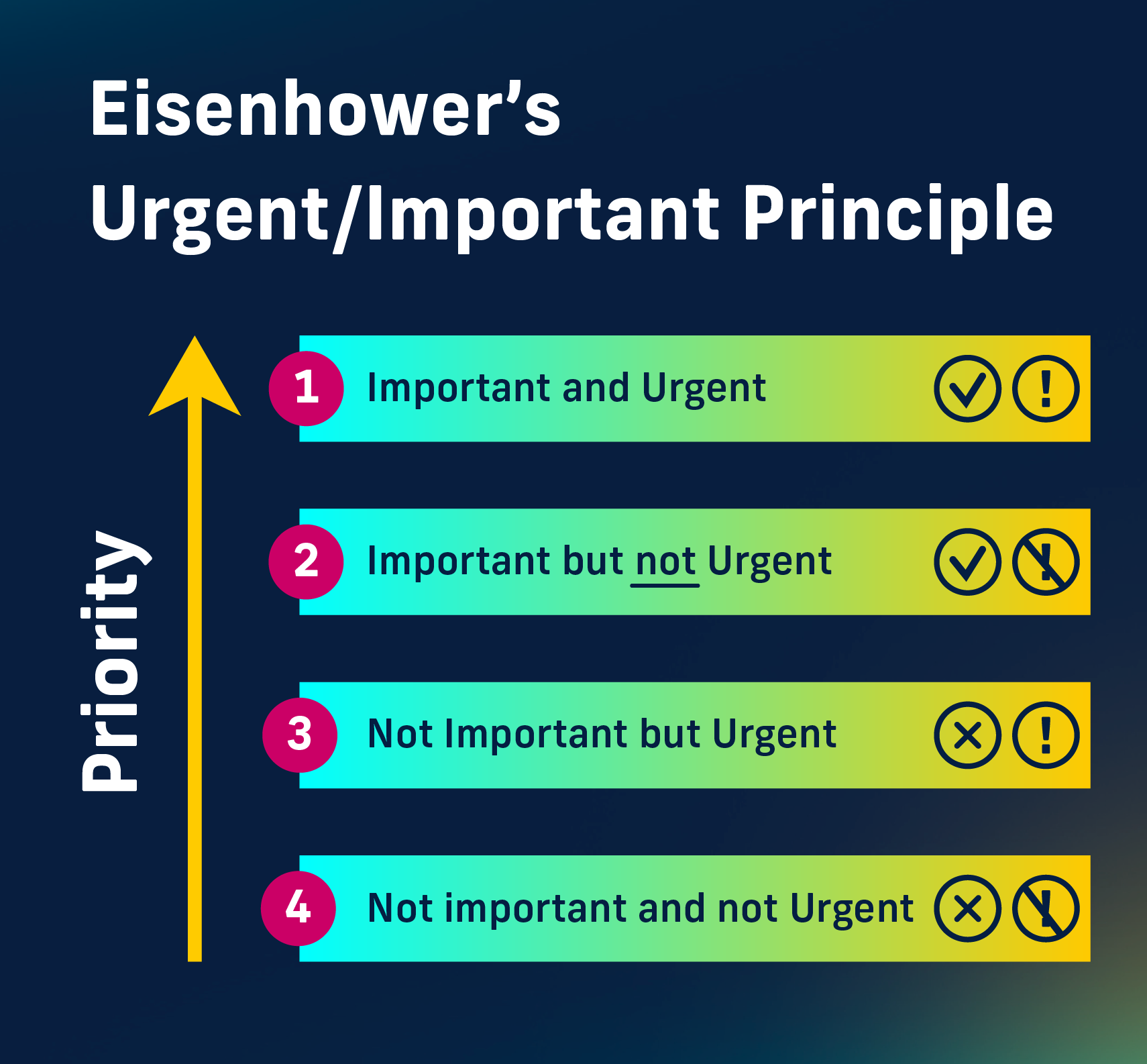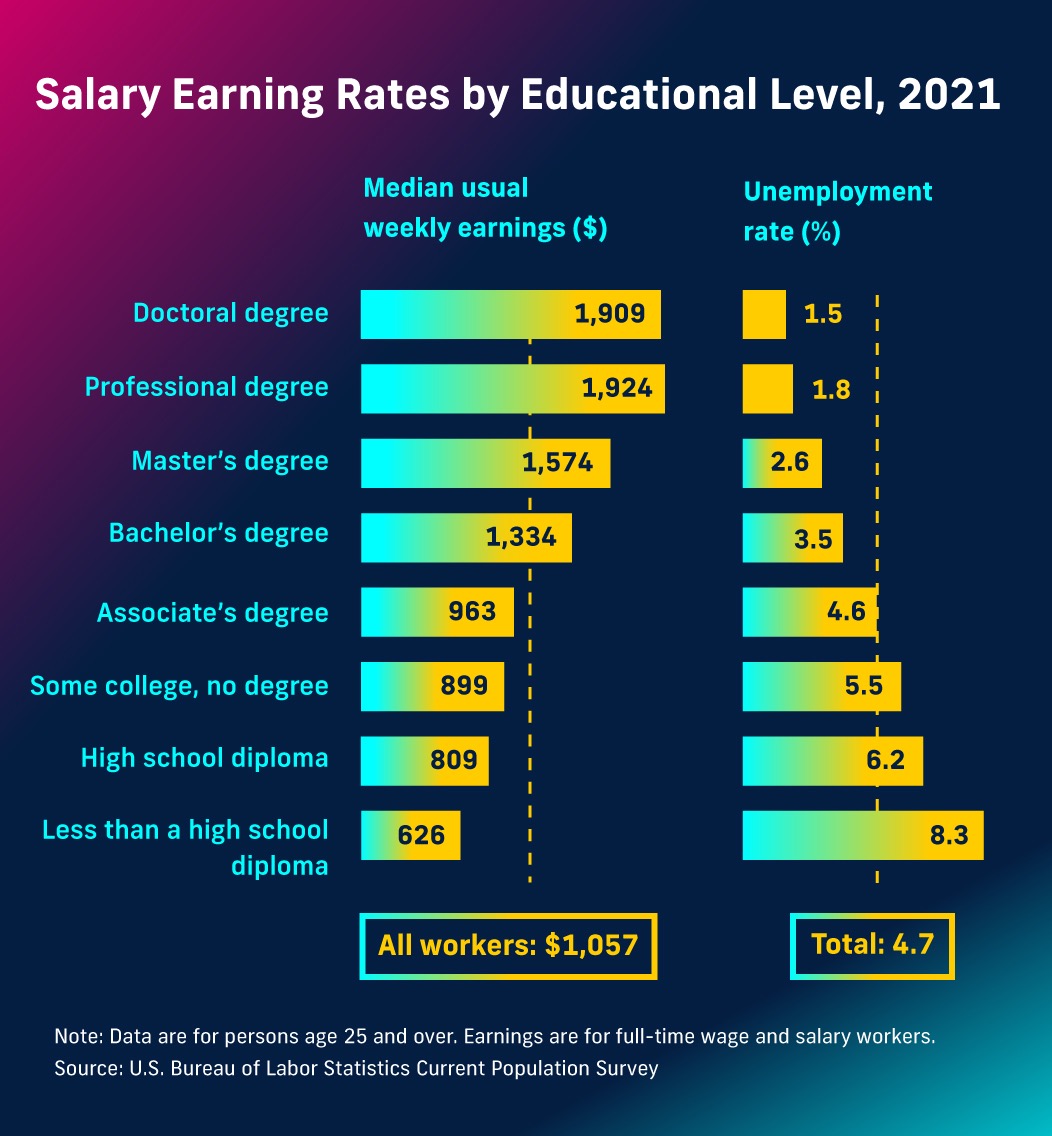Thinking about getting your master's degree but worried about having to balance school and work? We’ve got your back with tools to help you succeed.
Deciding to go back to school while working full-time is a big step, but there are ways to balance out everything going on in your life. It’s a path taken successfully by many before you, and with the right approach, you too can navigate it with ease.
Think of it as a strategic balancing act, where efficiency and planning are your pillars. This journey, while challenging, is immensely enriching and a testament to your commitment to lifelong learning and personal development.
And who better to offer meaningful advice than those who have experienced it firsthand? Below, you'll discover the inspiring journey of one of our graduate students, along with some helpful wisdom and advice.
From Foreign Territory to MSF Success
Let us to introduce you to Marina Vizdoaga—a woman whose amazing journey demonstrates resiliency and determination in the pursuit of higher education.
Immigrating from the small country of Moldova, Marina embarked on a courageous journey to the United States in 2016. With an undergraduate degree in Philosophy and Communication and a thriving career in PR and TV in her homeland, Marina had already tasted success. However, along with her new life in the U.S. came a significant challenge—she didn't speak English.
This language barrier forced Marina to reevaluate her career path in Public Relations. Undeterred by adversity, she decided to learn English and boldly chose to switch careers. After a few years, Marina found herself in the vibrant city of Miami, working with a high-level accounting firm. Marina's pursuit of excellence led to a pivotal moment in her career—being entrusted with the firm's most important client. Yet, even amid these professional triumphs, Marina envisioned more for herself.
This realization inspired her to aim higher and pursue a Master's in Finance degree (MSF) at FIU, a necessary step if she wanted to thrive in the competitive investment world. She knew it wouldn't be easy, with a demanding full-time job, including a recent promotion, but Marina was ready for the challenge.
Currently serving as the Vice President of Investments at LTV SaaS Growth Fund, Marina plays an essential role in shaping the SaaS business investment landscape. With the help of her honed leadership skills, she now directs and oversees the acquisition process for the fund, identifying and nurturing high-potential SaaS companies to help them thrive in a dynamic market.
Tips from Marina and other Graduates to Balance School and Work:

-
Effective Time Management: It’s important to prioritize tasks based on urgency and importance, and to allocate the necessary time effectively for both work and study.
Have you heard about former president Eisenhower's way of sorting out tasks? He splits them into four types: things that are urgent and important, things that are important but not urgent, then urgent but not really important, and finally, things that are neither urgent nor important. It's useful way to help you figure out what you should do right now and what can wait, so you're not just busy, but actually getting the important tasks done.

-
Get Your Ducks in a Row: Inform your friends and family about your plans for advancing your education so you can get the support and understanding you need. You’ll have to minimize leisure time temporarily and make schedule changes, so it is important to create a support system that can give you a backup for everyday activities like cooking, cleaning, dropping kids off at school, etc. Keep in mind that your current sacrifice will lead you to better opportunities. Pursuing a master’s degree is an investment in yourself. You are investing in an opportunity to excel at your current job or future career with the possibility of obtaining a higher-level position once you graduate.
Marina gives us an example of how this played out for her. “During my studies, I often chose not to go out on Friday nights and weekends, unlike many of my friends. This was a conscious decision, and I never felt like I was missing out on anything. It was about focusing on what mattered most to me. Parties will always be there, but your future is something you won't get a second chance to go back and change. Fortunately, my friends were understanding of my choices.”
-
Strategic Studying: Study efficiently by understanding the big picture and connecting concepts while using active learning methods. Marina gives us an example of how she implemented this, “I often was writing summaries to reinforce what I’ve learned in my own words or explaining concepts to someone else. This way I was able to see any gaps in my knowledge. I’m a visual learner, so techniques like acronyms, images, associations were essential.”
-
Transparent Communication: Keep open communication with employers, professors, and family. Negotiate flexibility for study and work commitments. Recognize and accept physical limits, setting clear expectations for yourself and others. Marina advises to, “Be upfront about your commitments and negotiate flexibility for critical study periods or work deadlines.” She mentions, “I started to actively communicate and set clear expectations. This strategy has helped me become a top performer in my professional endeavors, always meet deadlines punctually, and succeed as a distinguished student.”
-
Leverage Resources and Be Present: Utilize university resources to your advantage. Ask questions and seek help when needed. Show genuine interest in learning by staying present during class and lessons to make the most of educational opportunities. It’s easy to get distracted and have our mind wander elsewhere while we’re attending class or lectures. Whether it’s being on your phone, laptop, or mentally preoccupied, not giving lessons your full attention can decrease your understanding of class material, which means more hours of study at home. Stay present in the current moment and participate in class as much as possible in order to succeed in your courses.
What’s the Benefit of Obtaining a Master’s Degree while Studying?
Going to school while working can provide numerous benefits. Statistics show that individuals with higher education tend to earn more. There is an impressive 63% difference in the weekly median salary between those with an associate and a master’s degree and 18% between those with a bachelor's and a master's.

Opportunities in the current job market are increasingly requiring postsecondary education, and getting your education while working can lead to career advancement and skill enhancement. It also offers networking opportunities, job security, long-term financial stability, personal fulfillment, and a global perspective.
Marina’s Final Advice:
If you’re thinking about getting your degree, do it.
When considering enrolling in a master's program while balancing a professional role and your personal life, it's important to ask yourself the following:
What Will be Your Long-term Career Impact? Think about how the program aligns with both your immediate and long-term career goals. Consider the skills and knowledge you'll gain and how they'll play a role in your industry. Will education lead to new opportunities, leadership roles, or a career change?
What Will be the Effect on Your Personal Life? Reflect on how this choice will impact your life beyond your career. Evaluate how pursuing this degree aligns with your values, personal growth, and life plan.
“Choosing to pursue a Master's in Finance (MSF) can be clear-cut if it aligns with your career vision, like it was for me. Despite the challenges, the program’s benefits in terms of knowledge, skills, and experiences can be crucial for achieving your career aspirations.” Marina said.
FIU Chapman Graduate School of Business Master’s Programs
For individuals seeking to pursue the benefits of combining work and education, we offer a range of flexible programs designed to accommodate working professionals.
Our hybrid and online programs are designed to fit the varied schedules of our students, many of whom balance professional and personal responsibilities. By leveraging a sophisticated digital platform, we offer access to course materials, interactive discussions, and collaboration opportunities with faculty and peers, all available remotely.
To learn more about these offerings and how they can align with your goals, visit our programs listing.


